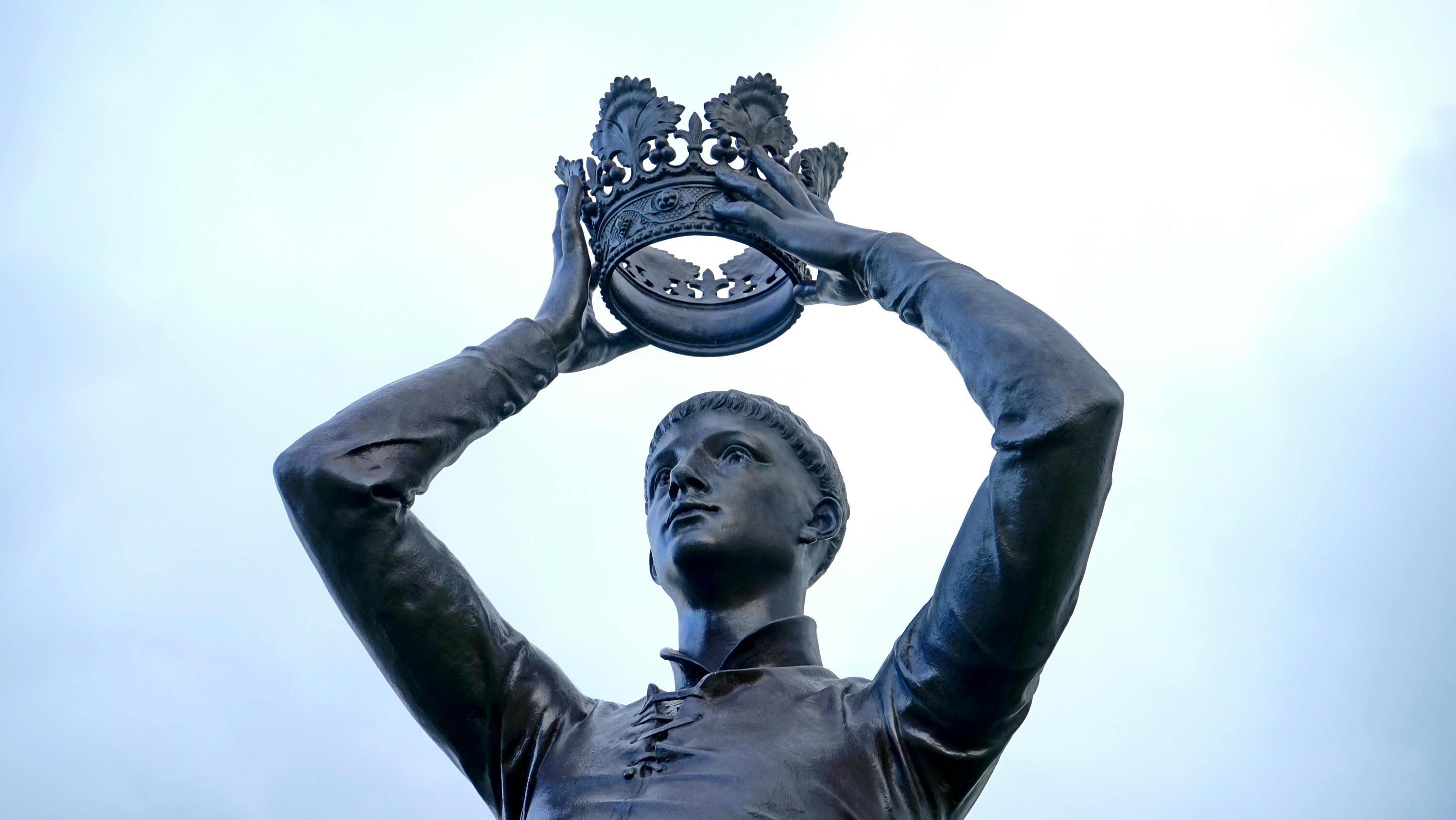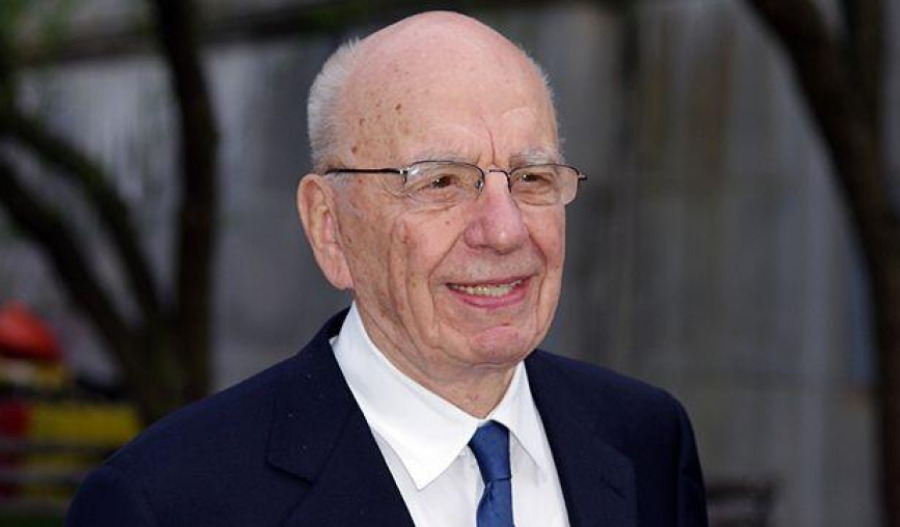If there was ever any doubt who Rupert Murdoch’s favourite child is, there is none now.
The 94-year-old Australian-born American citizen has anointed his eldest son, Lachlan, as the successor to take the reins of the US$43 billion (A$65 billion) global media empire he has spent more than 70 years building.
This conclusion came with the announcement that the bitter dispute over who would control the empire had been resolved in a legal settlement involving the six children from three of the founder’s four marriages.
Lachlan takes the reins
Under the deal announced on Monday (Tuesday AEST), 54-year-old Lachlan will cement control of the group, including News Corporation and Fox Corporation, while three of his siblings will walk away.
They are the other children from his 34-year second marriage: Elisabeth, 57, and James, 52; and his eldest child from his first marriage, Prudence MacLeod, 67.
If the three leave with their tails between their legs, they will not be empty-handed, trousering billions of dollars of cash, in return for giving up their interests in the family trust and selling their personal holdings in Fox and News.
The trust was set up in 1999 after Rupert's divorce from his second wife Anna, who wanted to ensure future offspring could not wrest control of the business from their three children, Elisabeth, Lachlan and James.
As it turned out, he had two more children with his third wife, Wendi Deng.
The New York Times newspaper estimated the payout, which is to be partly funded by the sale of Fox and News shares worth $1.4 billion and a $1 billion loan taken out by a new company led by Lachlan, at US$3.3 billion (A$5 billion) for the three of them.
The three issued a statement on Wednesday saying they were happy to have reached an agreement, according to a Reuters article.
"Prudence, Elisabeth and James are pleased that the matter is now behind them," a spokesperson for James Murdoch said in a statement emailed to Reuters.
The Financial Times (FT) newspaper noted the founder and his “loyalist” son had to sell enough shares to pay off the three dissident siblings while retaining control of Fox (NASDAQ: FOX) and News Corp (ASX: NWS).
“The maths was finely balanced,” the FT wrote in its influential Lex column.
Under the agreement, a new trust will be established for Lachlan, along with Grace and Chloe Murdoch, the 24 and 22-year-old daughters from his third marriage, which will own the remaining shares held by the family trust.
Rupert Murdoch had no children with his fourth wife, former supermodel Jerry Hall, and broke off an engagement with a potential fifth wife after two weeks in 2023.
The new trust will own 36.2% of Fox Class B stock, less than 0.1% of Fox Class A stock, 33.1% of News Class B stock and less than 0.1% of News Class A stock.
The FT wrote the new trust will own less than the family’s former 40% interest through which it controlled Fox, the parent company of right-wing Fox News and live sports broadcasts, and News Corp, a global media and information services company.
Through Fox and News Corp’s newspapers in the United States, Britain and Australia, Murdoch has also exercised significant influence over politics in those nations for decades, raising concerns about issues like democracy and the truth.
The publications range from the Wall Street Journal and New York Post in the United States, The Times of London, British tabloid The Sun and Australia’s The Australian, Daily Telegraph and Herald Sun.
It all started in 1952 when a 21-year-old Rupert Murdoch took over The Adelaide News following the death of his father, Sir Keith Murdoch, expanding aggressively with the acquisition of newspapers in Australia, Britain and the United States.
But it was the launch of Fox Broadcasting that made his name in the U.S.
Without an outright majority in an economic sense, Murdoch exercised control of the group through Class B voting shares, which outrank the Class A non-voting shares, a structure investors had unsuccessfully tried to unravel many times.
One was hedge fund Starboard Value which last year tried to dissolve the dual-class structure.
Opposition to Rupert Murdoch did not always fail, with investors stopping a planned merger of News Corp and Fox in 2005.
“The political leanings of its titles will remain firmly tilted to the right,” the FT added.
As The Guardian newspaper noted, it was an anticlimactic finale for a saga that had inspired the popular and award-winning HBO television drama Succession.
“Yet in reality, it marks a victory for Lachlan’s three siblings, who will get a far higher payment than they were previously being offered,” the Guardian wrote in this article.
Airing dirty linen
The real-life drama escalated when Rupert and Lachlan tried to change the terms of the family trust that gave Lachlan, Prudence, Elisabeth and James equal voting rights when the founder died.
Rupert and Lachlan, who share conservative political views, were concerned that Lachlan’s siblings could oust him and take the company, including cash cow Fox News, in a different political direction.
The dispute ended up being played out in a closed United States court, with media filming the entrances and departures of the protagonists.
“I’m glad it’s all over so that we can focus on the fundamentals of News Corp and Fox as opposed to talking about a private family (dispute), interesting as it may be,” Morningstar Director of Equity Research Brian Han told Azzet.
“The resolution of this in such an amicable way may disappoint some investors who were hoping the dispute could be a catalyst for a break-up of these empires.
“There’s a school of thought that the full value is not being realised within this conglomerate and family ownership structure.
“There’s definitely a conglomerate discount and there’s also a family discount, some might call it a Murdoch discount.”
Han, who has been covering News Corp for almost 30 years, said the discount had varied over time and fallen when some value was realised with the spin-off of 21st Century Fox’s sale of assets to Walt Disney Company (NYSE: DIS).
But he believed the current discount of 20% to 30% could be erased if some assets were sold, including News Corp’s 61% stake in digital real estate company REA Group.
“From the perspective of the family and the two companies this (settlement) should be good news because no longer will family disputes be taking all of the oxygen,” said Han.



